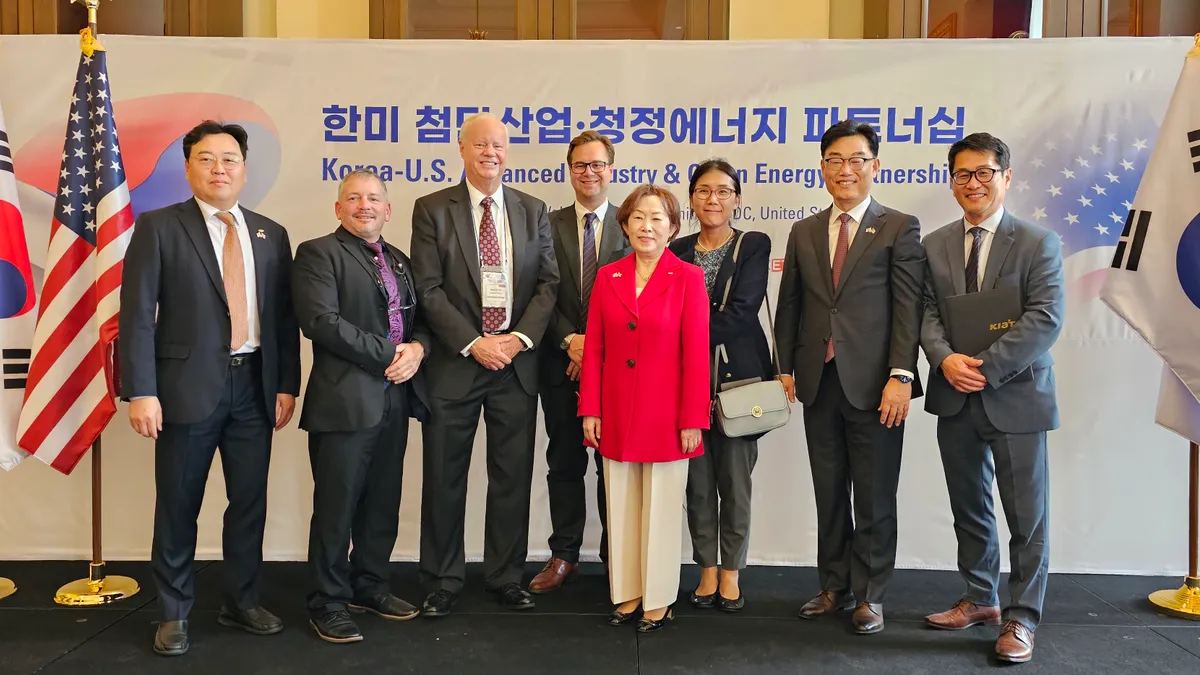U.S. and South Korea trade group leadership signed a memorandum of understanding last week to expedite the onshoring of South Korea-based EV battery manufacturing to the U.S.
Industry representatives joined the deal at President Joe Biden and South Korea President Yoon Suk-Yeol’s intergovernmental meeting in Washington on April 26. Signees included Korea Battery Industry Association Vice Chair Park Tae-Seong, Korea Electronics Technology Institute President Hee-Dong Shin, Korea Institute of Advancement of Technology President Chung Jae-hoon and NAATBatt Executive Director James Greenberger.
“If we want to build a vibrant North American supply chain for lithium-based batteries as quickly as possible, we need to use the best available manufacturing technology to achieve this,” Greenberger, the U.S. non-profit battery trade association founder, said in a statement. “This technology is largely with Korean companies. Hence we should integrate these Korean experts and companies to be part of that supply chain and the North American business community.”
With the billions of dollars the U.S. is investing to revitalize domestic manufacturing through recent legislation like the Inflation Reduction Act and CHIPS and Science Act, more companies are starting up operations in the U.S, Kamala Harris said in her remarks at a State Department luncheon for Yeol and First Lady Kim Keon Hee.
South Korea-based companies have invested over $100 billion in the U.S., which will help accelerate the country to a clean energy economy, Harris said.
In December, a joint venture between General Motors and South Korea-based LG Energy received a $2.5 billion loan from the Department of Energy to build EV battery plants in Ohio, Tennessee and Michigan.
Last week, GM and South Korea-based battery manufacturer Samsung SDI jointly announced partnering to build a $3 billion U.S. battery production plant.
Last year, Hyundai Motor Group broke ground on its upcoming $5.5 billion Georgia EV campus, which Georgia Gov. Brian Kemp, R, called the “largest economic development project in state history.” To date, the campus has attracted nearly $2 billion in investment from offsite suppliers moving to the state to supply the giant automaker, exceeding the $1 billion Georgia officials predicted at the project’s outset.
















